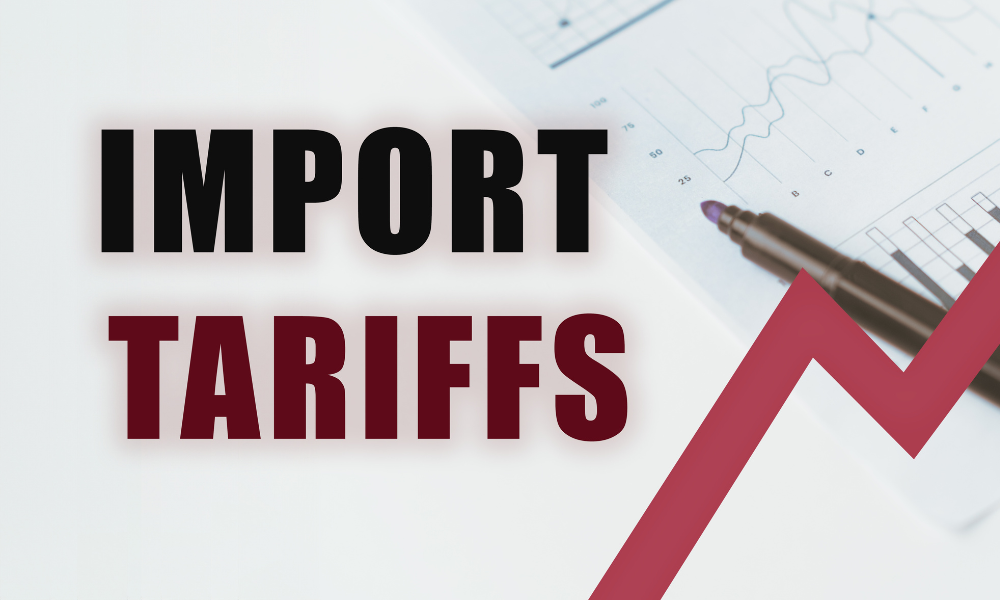Survey reveals growing concerns over debt, affordability, and the economic impact of US trade tariffs

With the cost of living already weighing heavily on household budgets, many Canadians are preparing for even tougher financial conditions as the Trump administration moves ahead with new tariffs on Canadian imports.
The tariffs, set to take effect on March 4, have sparked concerns about rising prices, adding another layer of uncertainty to an already strained economic environment.
Historically, countries have imposed tariffs for various reasons, such as national security, job protection, and government revenue generation. However, their use has declined in recent years due to modern trade agreements, as many economists argue that tariffs can disrupt global supply chains and drive up consumer prices.
The announcement sent financial markets into a downturn, with Dow Jones Industrial Average futures falling after Trump confirmed his administration would move forward with the levies.
Meanwhile, a new H&R Block Canada survey reveals that a growing number of Canadians are already worried about their ability to manage daily expenses, pay down debt, and keep up with inflation.
Canadians are increasingly feeling stretched thin, with 64% saying they expect 2025 to be a difficult financial year. Inflation may have eased slightly in recent months, but 81% of respondents worry their income isn’t keeping pace with rising costs, and 78% plan to cut back on spending this year.
Debt concerns are also mounting, with 42% expressing anxiety over their ability to meet financial obligations like credit card bills, loans, and mortgage payments.
While 54% of Canadians feel stable in their current financial situation, nearly half (46%) do not, and the uncertainty surrounding trade tariffs is amplifying those concerns. More than nine in ten (92%) fear Trump’s tariffs will push prices even higher, while 81% worry the economic impact will directly affect their personal finances.
Where Canadians are spending their money
As costs continue to rise, Canadians are prioritizing essential expenses and cutting back on non-essentials. The survey found that, on average, Canadians spend:
- 27% of their income on daily necessities, including groceries, transportation, utilities, and insurance.
- 24% on rent or mortgage payments.
- 14% on credit card and loan payments.
Other budget categories include childcare (10%), technology and subscriptions (10%), healthcare costs (8%), and entertainment (7%).
While two-thirds (63%) say they live comfortably at their current income level, a third (32%) struggle to make ends meet. Among those cutting back, many are focusing on discretionary spending, while others are redirecting funds toward savings and debt repayment.
With affordability concerns at the forefront, 71% of Canadians say they won’t buy something unless they can afford it outright. However, 24% rely on credit cards or borrowed money for purchases, and 5% use buy-now-pay-later (BNPL) services.
The dream of homeownership remains a major financial goal, but many feel it’s slipping out of reach. While 27% say they are carefully saving to buy a home, a larger group, 33%, say they’ve shifted their focus to enjoying their money instead, as homeownership feels unattainable.
Tax refunds
As household budgets tighten, many Canadians are looking to tax refunds to provide much-needed relief. The survey found that 65% expect a tax refund this year, and 35% anticipate receiving the same or a larger refund than last year.
However, tax literacy remains a challenge. More than a third (37%) admit they don’t fully understand how to maximize their tax return, and 27% of gig economy workers are unclear on how their income affects their taxes.
Yannick Lemay, tax expert at H&R Block Canada, said many Canadians may be missing out on valuable tax credits and benefits.
Read next: Trump threats overshadow housing concerns as Ontario gets ready to vote
“The good news is there are more than four hundred tax credits and benefits that help Canadians minimize their taxable income and maximize their refunds,” Lemay said. “This includes credits for childcare, education, dental benefits, health and wellness expenses, and the Canada Workers Benefit.”
Filing taxes properly, he added, could put money back in the hands of Canadians who need it most.
“One way for Canadians to get some extra money is to file their taxes,” Lemay said. “Each year, there are thousands of Canadians that miss out on tax credits and benefits because they don’t realize they’re eligible for them.”
Make sure to get all the latest news to your inbox on Canada’s mortgage and housing markets by signing up for our free daily newsletter here.



